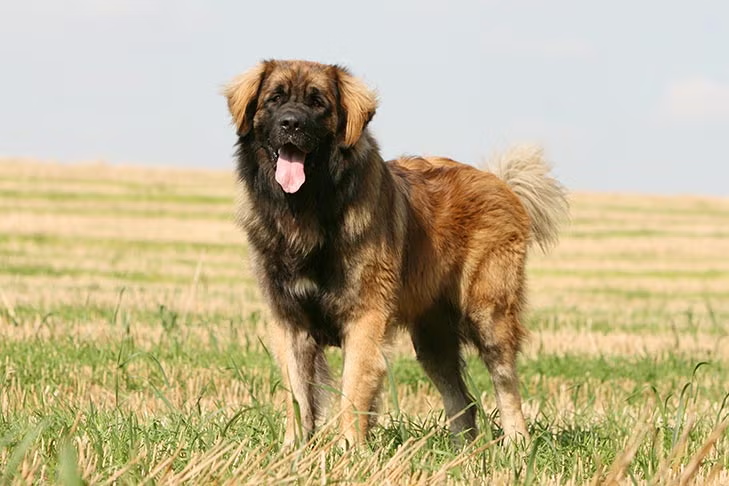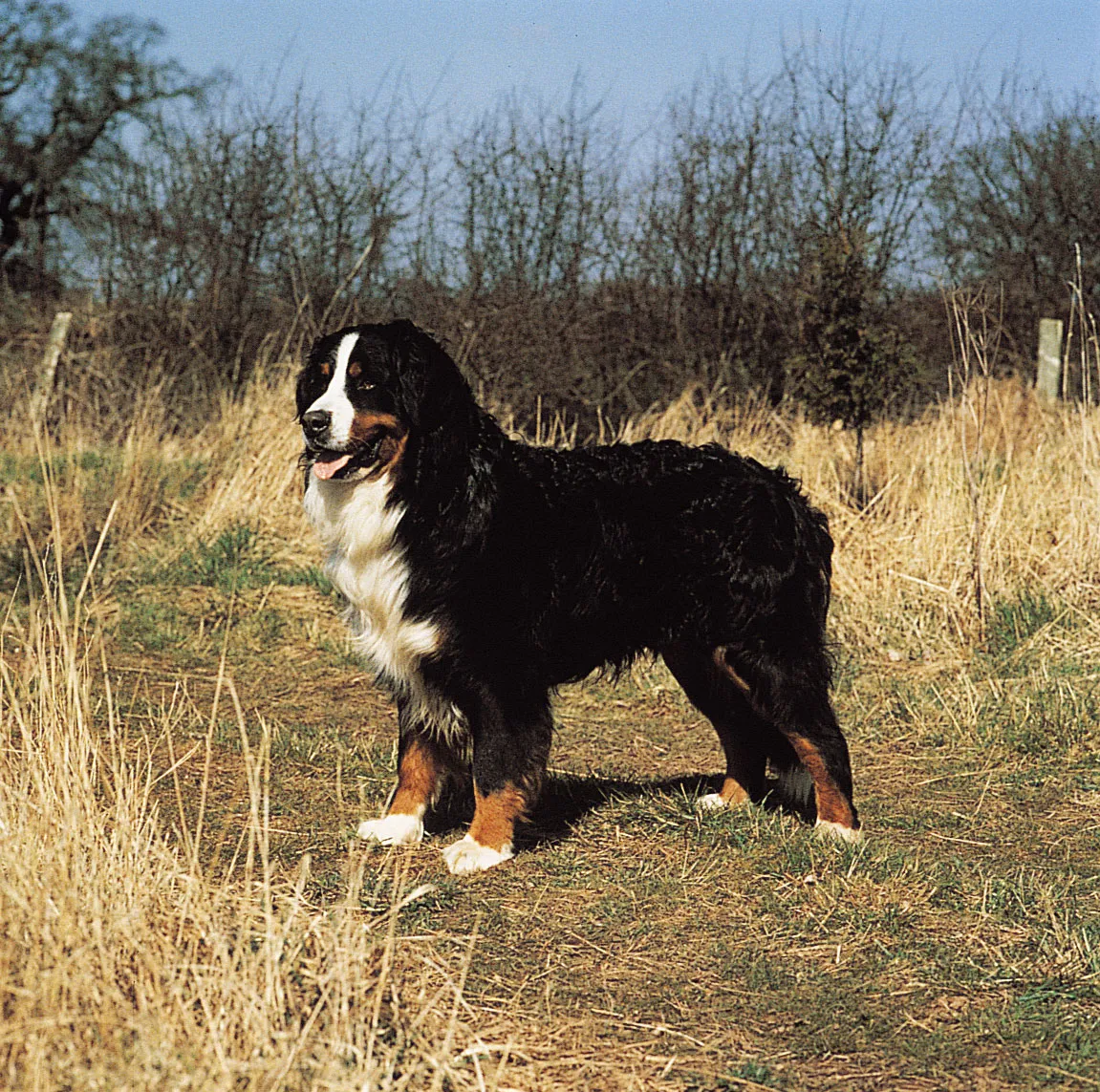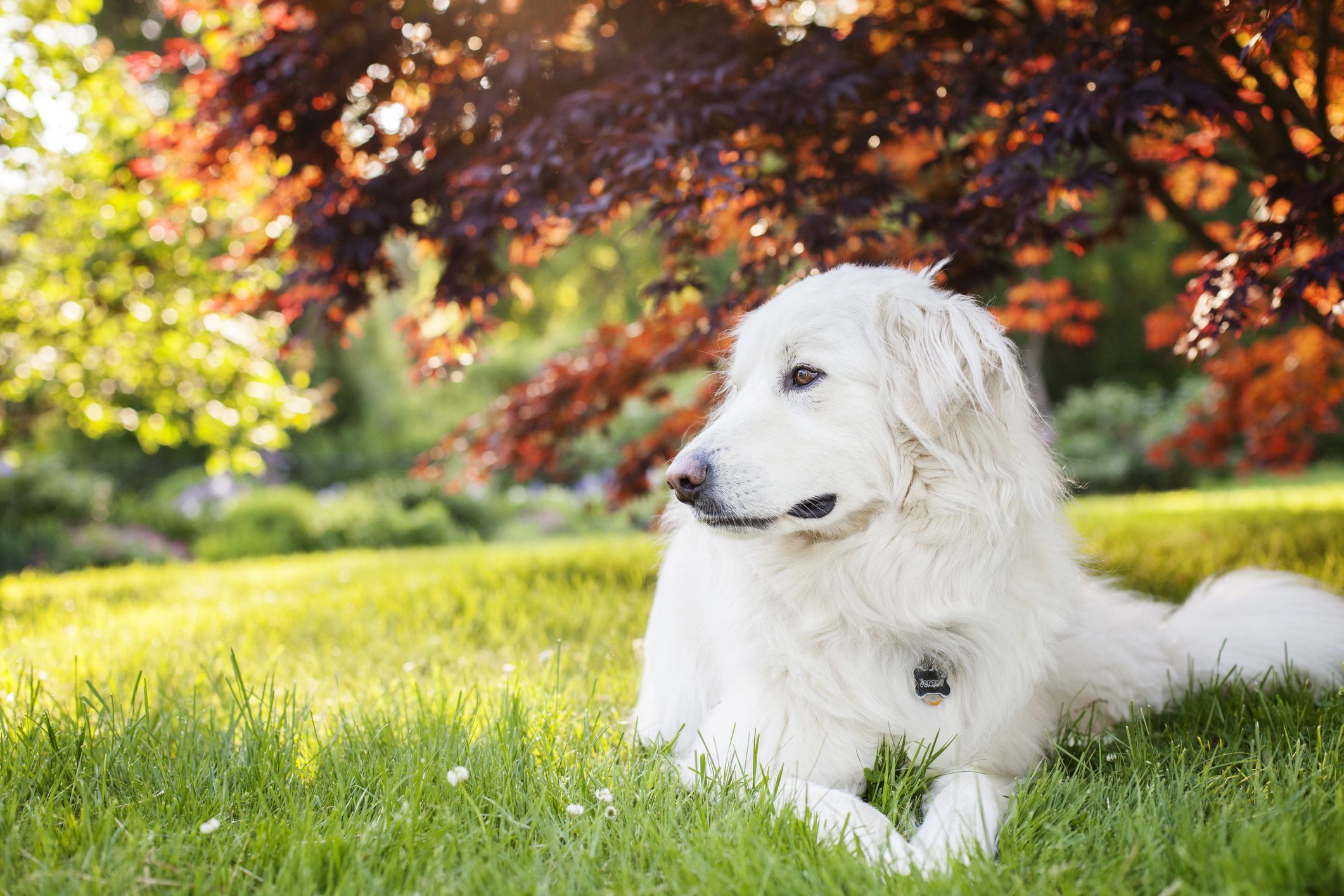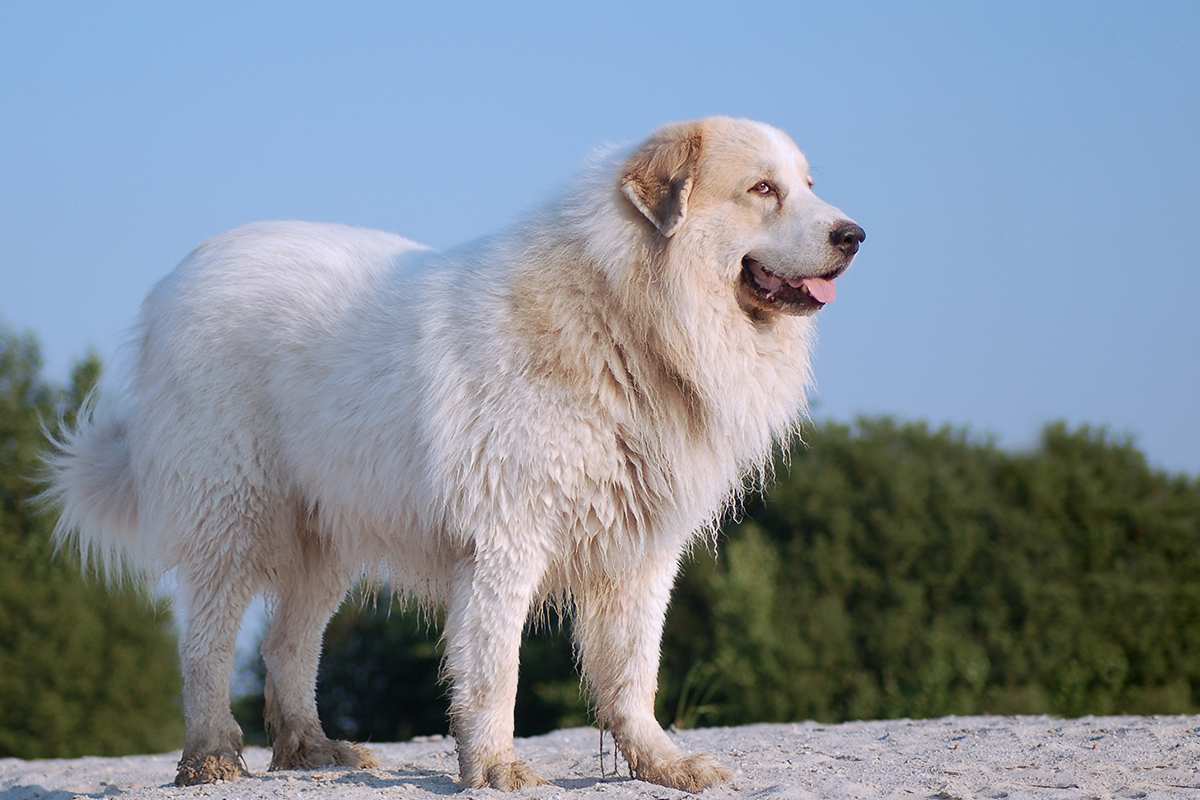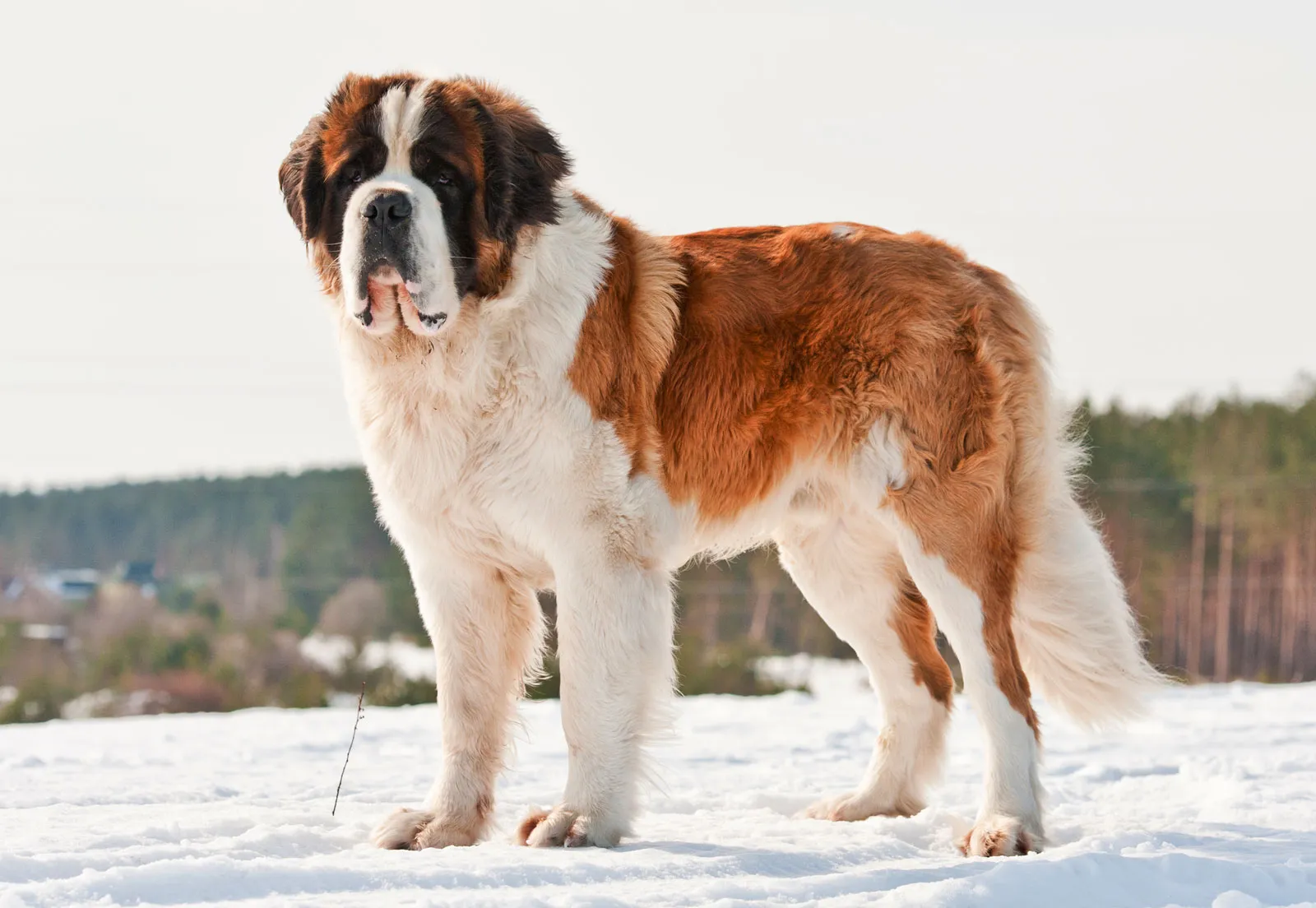The first time I saw a Leonberger in person, I literally stopped in my tracks. Walking through a local dog festival, I spotted what I initially thought was a small bear or maybe even a lion with its magnificent mane and imposing presence. But as I got closer, I saw the gentle eyes and wagging tail of what has to be one of the most impressive dog breeds on the planet.
If you’ve never had the pleasure of meeting a “Leo” (as owners affectionately call them), you’re in for a treat today. These gentle giants combine the best qualities of working dogs with an incredibly sweet, family-oriented temperament that makes them as lovable as they are impressive.
While not as common as Labradors or Golden Retrievers, Leonbergers are steadily gaining popularity in the US – and for good reason. In this guide, I’m diving deep into everything you need to know about this magnificent breed, from their royal history to their care needs and whether they might be the right fit for your family.
So grab a cup of coffee and settle in – you’re about to discover why Leonberger enthusiasts are so passionate about these lion-like companions!
The Royal History: From German Status Symbol to Family Companion
The Leonberger’s story begins in the 1830s in the German town of Leonberg, where Heinrich Essig – the town’s mayor and an ambitious dog breeder – set out to create a dog that resembled the lion in the town’s crest. Talk about civic pride, right?
Essig’s vision was to develop a noble-looking dog that would appeal to European royalty and aristocrats (smart marketing for the 19th century!). He reportedly crossed a female Landseer Newfoundland with a “barry” male from the Great St. Bernard Hospice (ancestors of today’s Saint Bernard), and later added Pyrenean Mountain Dog to the mix.
The resulting breed was a hit among the elite of Europe. These majestic dogs found their way into the royal courts of several countries, becoming favorites of:
- Napoleon II of France
- Empress Elisabeth of Austria (the famous “Sisi”)
- The Prince of Wales
- Otto Von Bismarck
- Emperor Napoleon III
- King Umberto I of Italy
But despite their fancy beginnings, Leonbergers weren’t just royal lap dogs. These powerful animals were versatile working dogs on farms throughout Germany, pulling carts, herding livestock, and guarding property. This combination of noble appearance and practical working ability made them uniquely valuable.
The breed faced near-extinction during World War I when they were used to pull ammunition carts. By the end of the war, only a handful of breeding-quality Leonbergers remained in the world. Thanks to dedicated enthusiasts like Karl Stadelmann and Otto Josenhans, the breed was saved through careful breeding programs.
Leonbergers didn’t arrive in the United States until 1968, and were only officially recognized by the American Kennel Club in 2010, making them a relatively new addition to the official roster of American dog breeds. Today, they’re ranked around 95th in popularity among AKC-registered breeds, but their fan base is growing steadily as more people discover these gentle giants.
Unmistakable Appearance: The Lion of the Dog World
There’s no mistaking a Leonberger for any other breed – these dogs have a presence that commands attention wherever they go. Let’s break down their distinctive appearance:
Size and Build
Leonbergers are truly giant dogs. Males stand between 28-31.5 inches tall at the shoulder and weigh between 120-170 pounds. Females are slightly smaller but still substantial at 25.5-29.5 inches tall and 100-130 pounds.
Despite their size, Leos are well-proportioned and surprisingly agile. They have strong, muscular bodies with deep chests and powerful legs – a build that reflects their history as working dogs capable of pulling heavy loads.
That Magnificent Coat
The Leonberger’s crowning glory is undoubtedly its beautiful coat. It’s medium to long in length, water-resistant, and comes in shades ranging from golden yellow to red-brown. Most striking is the black mask that covers the muzzle and extends around the eyes, giving them that distinct leonine (lion-like) appearance.
Males develop an impressive mane around their neck and chest as they mature (usually by 2-3 years of age), enhancing their lion-like appearance. Females typically have a more elegant, less shaggy look but are equally beautiful.
The coat is double-layered, with a soft, dense undercoat and a coarser, slightly wavy outer coat that provides protection from the elements – perfect for working in the Alpine climates of their homeland.
Expressive Features
Leonbergers have dark, almond-shaped eyes that convey intelligence and a gentle nature. Their ears are fleshy, medium-sized, and hang close to the head. When alert, a Leo’s expression is attentive and engaged, making them seem almost human-like in their responsiveness.
Their tails are bushy and carried low when relaxed, and they have large, webbed paws that make them excellent swimmers – a trait inherited from their Newfoundland ancestors.
Temperament: The True Definition of “Gentle Giant”
What truly sets the Leonberger apart from other giant breeds is their exceptional temperament. These dogs were bred to be family companions as well as working dogs, and this dual purpose is reflected in their balanced personality.
Family-Oriented and Loving
Leonbergers form incredibly strong bonds with their families. They’re affectionate, loyal, and often want to be wherever their people are – which can be amusing when a 150-pound dog decides he’s a lap dog! They’re particularly wonderful with children, displaying patience and gentleness that seems at odds with their size.
Of course, due to their sheer size, interactions between Leos and small children should always be supervised. Not because they’re aggressive – quite the opposite – but because an excited Leo could accidentally knock over a small child simply by being enthusiastic.
Intelligent and Trainable
Don’t let their shaggy appearance fool you – behind that mane is a sharp mind. Leonbergers are highly intelligent dogs who learn quickly and respond well to positive training methods. They excel in activities like drafting (cart-pulling), water rescue, therapy work, and even agility (yes, despite their size!).
Like many working breeds, they do have an independent streak and can be stubborn at times, especially during adolescence. Consistent, reward-based training from an early age is essential to channel their intelligence positively.
Social yet Discerning
A well-socialized Leonberger typically gets along well with other animals and is friendly toward visitors, though they can be somewhat reserved with strangers at first. They’re not aggressive by nature, but their size alone makes them effective deterrents against unwanted visitors.
Their deep, powerful bark serves as an excellent alert system, but they’re not typically excessive barkers. Once they determine a visitor is welcome, they’re more likely to try to make friends (or possibly lean against the guest’s legs – a signature Leo move).
Calm and Composed
Despite their capacity for playfulness and activity, mature Leonbergers have a remarkably calm demeanor indoors. They’re not bouncing-off-the-walls energetic like some working breeds and are happy to simply be near their people, making them surprisingly suitable for less active families (though they do need regular exercise).
This balanced temperament is part of what makes them excellent therapy dogs – they’re naturally attuned to human emotions and provide a comforting presence without being overly excitable.
Health and Lifespan: Understanding the Giant Breed Reality
As with all purebred dogs, Leonbergers are prone to certain health conditions. Additionally, like most giant breeds, they have a relatively short lifespan compared to smaller dogs. Being informed about these aspects is crucial for anyone considering bringing a Leo into their family.
Lifespan
The average lifespan of a Leonberger is approximately 8-9 years, though some can live to 10-11 years with excellent care. While this might seem short compared to smaller breeds that can live 15+ years, it’s fairly typical for dogs of this size.
Recent research shows some improvement in longevity, with a 2024 UK study finding an average lifespan of about 10 years. This is likely due to better breeding practices and advances in veterinary care. Still, the heartbreakingly short time we get with these magnificent dogs is something every prospective owner must consider.
Common Health Concerns
Like many large breeds, Leonbergers are susceptible to certain health issues:
- Gastric Dilatation-Volvulus (Bloat): This life-threatening condition occurs when the stomach fills with gas and twists. It requires immediate emergency veterinary intervention.
- Splenic Torsion: Similar to bloat but involving the spleen, this condition is more common in Leonbergers than in many other breeds.
- Cancer: According to the Leonberger Health Foundation, cancer is unfortunately the leading cause of death in the breed, particularly osteosarcoma (bone cancer) and hemangiosarcoma.
- Hip and Elbow Dysplasia: These developmental conditions affect the joints and can lead to arthritis and mobility issues.
- Dilated Cardiomyopathy: A heart condition in which the heart becomes enlarged and doesn’t function properly.
- Cataracts: Clouding of the eye lens that can develop as dogs age, potentially leading to vision impairment.
- Polyneuropathy: A neurological condition that affects the peripheral nerves.
Working with a reputable breeder who performs appropriate health testing on their breeding stock is essential for minimizing these risks. Many dedicated Leonberger breeders are deeply committed to improving the health and longevity of the breed.
Preventative Care
To help your Leonberger live the longest, healthiest life possible:
- Keep them at a healthy weight – excess pounds put strain on joints and overall health
- Feed multiple smaller meals rather than one large meal to reduce bloat risk
- Consider a preventative gastropexy surgery (stomach tacking) to prevent bloat
- Schedule regular veterinary check-ups, ideally twice yearly for adult dogs
- Provide appropriate exercise without overexertion, especially in warm weather
- Consider joint supplements containing glucosamine and chondroitin
- Be vigilant about seeking veterinary care at the first sign of potential issues
With proper care and attention, many Leonbergers can live healthy, active lives well into their senior years, though owners should be prepared for the emotional and financial aspects of caring for an aging giant breed.
Living With a Leonberger: What to Expect Day-to-Day
Before bringing home a Leonberger, it’s important to understand what daily life with these gentle giants entails. They have specific needs that differ from more common breeds, and being prepared will ensure a happy relationship for both you and your Leo.
Exercise Requirements
Despite their working heritage, Leonbergers have moderate exercise needs compared to some high-energy breeds. They do well with:
- Daily walks totaling about 60 minutes
- Access to a securely fenced yard for free movement
- Swimming (which they typically love, thanks to their Newfoundland ancestry)
- Hiking at a moderate pace
- Drafting or cart-pulling activities that engage their working instincts
It’s important not to over-exercise young Leos while they’re still growing, as this can damage developing joints. Similarly, adult Leonbergers should not be exercised in hot weather as they can overheat quickly due to their thick coats.
Grooming Needs
That glorious coat comes with significant maintenance requirements:
- Brushing 2-3 times weekly with the right tools (slicker brush, undercoat rake, and wide-toothed comb)
- More frequent brushing during seasonal shedding (spring and fall), when they “blow” their undercoat
- Regular nail trimming, ear cleaning, and dental care
- Occasional baths (every 4-8 weeks, depending on activities and coat condition)
While professional grooming isn’t strictly necessary, many Leonberger owners find that scheduling occasional professional grooming sessions helps manage the coat, especially during heavy shedding periods.
Be prepared for fur – lots of it. Leonbergers shed year-round, with heavier shedding in spring and fall. A good vacuum cleaner is an essential investment for Leo owners!
Training Approach
Early and consistent training is absolutely essential for a breed of this size and strength. Even the most gentle-natured Leo needs to learn appropriate behavior and commands, particularly leash manners – a 150-pound dog pulling on the leash is no small matter!
Leonbergers respond best to positive reinforcement methods. They’re sensitive dogs who form strong bonds with their handlers and want to please, but can shut down with harsh corrections. Puppy classes and basic obedience training should begin early, followed by more advanced training as they mature.
Socialization is equally important – exposing your Leo puppy to different people, animals, environments, and situations helps them develop into well-adjusted adults who are comfortable in various settings.
Living Space Considerations
While Leonbergers don’t need acres of land, they do require sufficient space to move comfortably. Their ideal living situation includes:
- A home with at least a moderate-sized yard
- Enough indoor space for them to maneuver without constantly knocking things over
- Secure fencing (these aren’t typically escape artists, but better safe than sorry)
- Access to cool resting areas, especially in warmer climates
Apartment living is challenging but not impossible with a Leonberger, provided they receive adequate exercise and the building doesn’t have weight restrictions (many do). More important than square footage is the amount of time they spend with their people – Leos don’t do well when left alone for long periods.
Feeding Guidelines
Nutrition is particularly important for giant breeds like the Leonberger. Their dietary needs include:
- High-quality food formulated for large or giant breeds
- Appropriate calcium and phosphorus levels, especially for puppies
- Careful portion control to maintain ideal weight
- Multiple smaller meals rather than one large meal (to reduce bloat risk)
Adult Leonbergers typically eat between 5-7 cups of high-quality dry food daily, divided into at least two meals. The exact amount will vary based on the dog’s size, age, activity level, and metabolism.
Is a Leonberger Right for Your Family?
After learning about these magnificent dogs, you might be wondering if a Leonberger would be a good fit for your household. Here’s a candid assessment of who might be well-matched with a Leo:
You Might Be a Good Leonberger Owner If:
- You have adequate space: A home with at least some yard is ideal for these large dogs
- You’re experienced with dogs: While not the most challenging breed, Leos do best with owners who understand canine behavior and training
- You’re home frequently: These dogs form strong bonds with their families and don’t do well with extended alone time
- You can handle their size: Not just physically, but also the financial aspects of feeding, housing, and providing veterinary care for a giant breed
- You don’t mind fur: If you’re a neat freak who can’t stand dog hair on furniture, a Leonberger will test your limits
- You appreciate a calm, gentle temperament: If you’re looking for an active jogging partner or high-energy playmate, other breeds might be better suited
This Might Not Be Your Breed If:
- You live in a very hot climate: Their thick coats make them better suited to moderate or cool environments
- You’re away from home for long hours: Leonbergers need companionship and don’t thrive when left alone for extended periods
- You’re looking for a guard dog: While their size is a deterrent, they’re typically too friendly for serious protection work
- You can’t commit to regular grooming: That magnificent coat requires consistent maintenance
- You want a long-lived dog: Their 8-10 year lifespan is shorter than many breeds, which can be heartbreaking for families
- You’re a first-time dog owner: While gentle, their size and specific needs make them better suited to experienced dog owners
Finding a Leonberger
If you decide a Leonberger is right for your family, there are two primary routes to consider:
Reputable Breeders: The Leonberger Club of America maintains a breeder referral program to connect prospective owners with ethical breeders. Expect to pay between $1,500-$3,000 for a well-bred puppy from health-tested parents, and be prepared for a waiting list as responsible breeders typically don’t produce frequent litters.
Rescue Organizations: While less common in shelters than popular breeds, Leonbergers sometimes need rehoming. The Leonberger Rescue Foundation specializes in finding new homes for Leos in need. Adopting an adult Leonberger can be a wonderful option, particularly for those who want to skip the challenging puppy stage.
Whichever route you choose, take time to research thoroughly, ask questions, and ensure you’re working with ethical sources that prioritize health and temperament.
Life with a Leo: Owner Insights
To give you a feel for what life with a Leonberger is really like, here are some perspectives from Leo owners:
“People always ask if I’m walking a bear or a lion, and kids always want to pet him. Going anywhere with my Leo means budgeting extra time for all the attention he gets!”
“The hair is no joke. I vacuum daily and still find tumbleweeds of fur in corners. But his loving personality more than makes up for it.”
“My Leo thinks he’s a lap dog. All 140 pounds of him will try to curl up on the couch with me – I’ve learned to make space!”
“We lost our Leo at 9 years old to cancer, and it was devastating. Their short lifespan is the only real downside to this amazing breed.”
“He’s incredibly intuitive about emotions. If I’m sad or sick, he won’t leave my side. It’s like having a giant, furry therapist.”
“Training early and consistently is essential. Our first Leo pulled us down the street as a youngster, but our second was a dream on leash because we started proper training from day one.”
Final Thoughts: The Leonberger Legacy
The Leonberger is truly a special breed – a harmonious blend of impressive size, gentle temperament, and unwavering loyalty. From their royal origins to their current status as beloved family companions, these dogs have captivated the hearts of those fortunate enough to know them.
While they’re not the right fit for every home, for families who can provide the space, care, and companionship they need, Leonbergers offer an unparalleled depth of connection and joy. Their calm wisdom, patient affection, and occasional goofy antics create a unique package that many owners find irreplaceable.
Perhaps the most telling testament to the breed comes from those who have loved and lost a Leo – despite the heartbreak of their relatively short lifespans, many say they couldn’t imagine life without another one. There’s something about these gentle giants that leaves an indelible paw print on the heart.
Have you had the pleasure of knowing a Leonberger? Or are you considering adding one to your family? Share your experiences or questions in the comments below!
